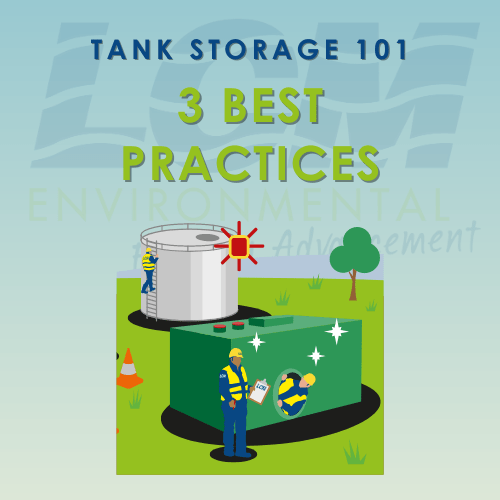
Fuel Storage 101: 3 Best Practices for Effective Maintenance and Compliance
Anyone who’s storing fuel in bulk or has a business requiring the usage of bulk quantities of diesels knows that their maintenance is a non-negotiable part of the process.
We’ve all heard of fuel filtering and keeping the hydrocarbons clean of any particulates, water and sludge; however, there is not much use in regularly cleaning your fuel, if you don’t tend to its storage tank, too!
So, how do you ensure your tank is compliant and effectively maintained? Follow our top 3 best practices!

1. Regular testing and Inspections
All things break eventually – and your complex fuel infrastructure is no exception! This is why routine inspections of all components of your bulk fuel storage system are essential for its healthy existence. Regularly check on your tanks, pipelines, valves, filters, and dispensing equipment – if you get a sighting of rust, corrosion, any leaks, or structural damage, give us a call straight away! Your site might be in danger of an environmental hazard!
Regularly testing your fuel is just as important as having your tank tested. This ensures compliance with your hydrocarbons’ initial specification and helps you identify any accumulated sludge, water or the so-called ‘diesel bug’. When we perform our fuel tests, we’re looking for water content, microbial growth, sediment in the sample and fuel stability. All these components are essential for our team to determine the quality of your fuel and prevent potential equipment damage.
2. Do not compromise with your fuel handling and storage practices.
Better safe than sorry! Bunded tanks are a requirement for bulk stored fuel; you’d be wise to consider an additional secondary containment system to prevent any incidental spills from reaching the environment. Using bunds, drip trays or spill containment and interceptors are some of the methods we’d recommend for capturing and containing any possible fuel leaks.
When storing your fuel, ensure that all tanks, pipes, and equipment are clearly labelled and signed with the appropriate warning signs, capacity information and identification labels. This will help with the safe handling and minimize the risk of an environmental accident happening at your site.
3. Preventative maintenance
The cheapest way to handle a spill… is to make sure you don’t have one. Develop a comprehensive schedule of all needed maintenance (annual inspections, equipment servicing, replacement of filters or device calibrations). To make things easier for you, LCM have a full PPM programme that schedules and books all of the above for you!
Don’t leave it till it breaks! Always address maintenance issues as soon as you become aware of them to prevent equipment failure, fuel contamination or a spill. Make sure you replace worn-out parts and repair any leaks (no matter how small) to prevent your business reputation from being put on the line!
By keeping these 3 best practices in mind, your fuel environment will be kept compliant and well-maintained; your stored fuel will stay within specification and you will spare yourself the trouble of dealing with a fuel spill and an environmental hazard on your hands.
Always remember to speak to professionals and stay current on the latest regulations – our team is here to help!
You can always get in touch with us at…
T: 0808 164 4570
E: hello@lcmenvironmental.co.uk
www.lcmenvironmental.co.uk

